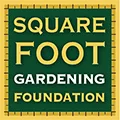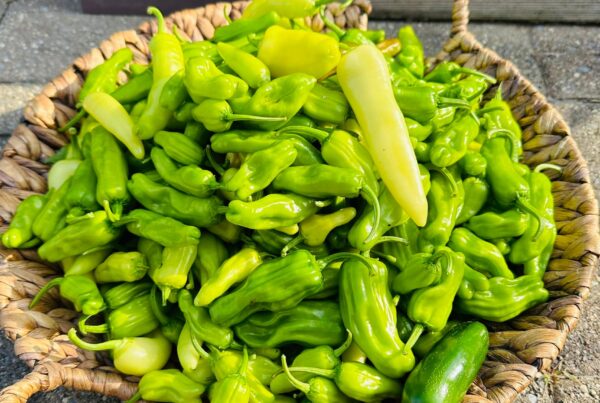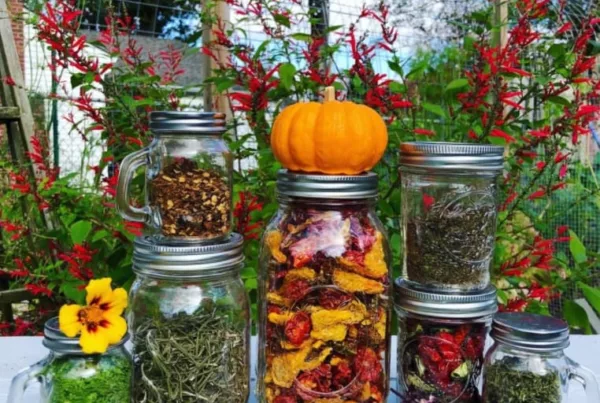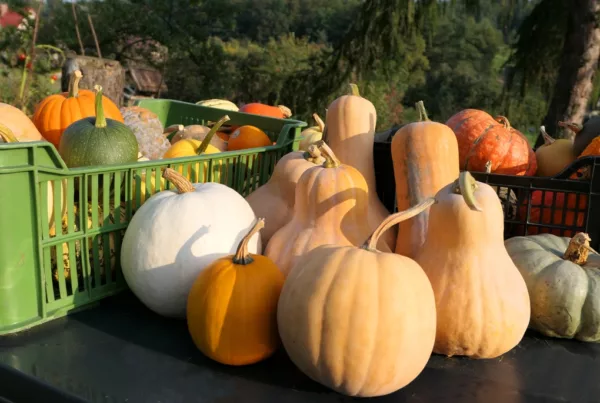Written by Alex Darc
It’s that time of year to start browsing seed catalogs and making your seed list for next year. So many decisions to make! So many seeds, and sellers, and so many kinds of seed to choose from. Where do you begin? First, the most important thing to do is to make sure you are buying Certified Seed.
Certified seed is seed of a known variety produced under strict seed certification standards to maintain the purity of the variety. It must also meet specified standards for good germination, for being weed-free, and free of inert matter. All certified seed must pass field inspection by state labs, be conditioned by an approved seed conditioning plant, and then pass laboratory testing before it can be sold as certified seed. All this effort is to protect not only you the grower, but also to protect your local growers and food supply, and to protect the seed strain itself. If your source doesn’t lab test and certify their seeds, shop somewhere else. All seeds sold in packets in stores in the US have to be certified. If you walk into any Big Box store, hardware store or garden center to buy seeds, you can rest assured those seeds have been certified.
The majority of catalog sellers I have ever seen also certifies their seeds. Online is where it gets tricky. If your online seed seller doesn’t state they only sell certified seeds, ask them where they have their seed certified. Most Amazon, Etsy, and E-bay seed sellers do not certify their seeds. And some of these sellers are illegally importing seeds to the US. I strongly advise against buying your seeds from these outlets, unless your seller can prove they follow US Seed Selling laws and test and certify their seeds.
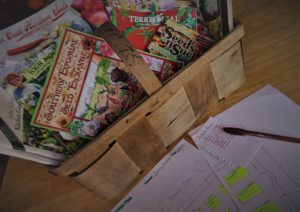
So where to buy is easy. Catalogs and in person are both good safe options. Online takes a little more research. What to buy is another question.
Many gardeners worry about GMO seeds, but it is nearly impossible for a gardener to buy GMO seeds even if they wanted to. GMO seeds must be contracted for, because there are strictly enforced rules the grower must abide by to grow GMO seeds. They are not sold in little packs at your local garden store. That said, many seed dealers have taken the “Safe Seed Pledge” which states that they “do not knowingly buy or sell genetically engineered seeds or plants.” For those of you who are concerned about the long term impact of GMOs, it is nice to financially support companies that agree with your stance.
The next big question is what type of seeds? Organic, Conventional, Heirloom, Open Pollinated, Hybrid? Which ones are best? There is no one right answer.
For home gardeners, Certified Organic seeds or Conventional seeds is personal preference. Certified Organic seeds are seeds grown in accordance with the National Organic Program regulations, using only organic fertilizers, pesticides and fungicides. You’ll notice that organic seeds are often much more expensive than conventional seeds. Often, that is because they require costly testing and documented proof that they were indeed raised organically. Some seed houses grow both kinds of seeds the same way, but only bother to pay to certify a portion of it as organic. In order for crops to be sold as organic, The National Organic Program requires farmers to start with organic seeds if they want to sell their crops as organic.
The term “Organic seeds” refer to seeds that are untreated or treated only with allowed substances found on the National List of Allowed and Prohibited Substances. In my experience, unless you are selling your crops as organic on your certified organic farm, or unless you want to support the growers of organic seed, there is no need to buy organic seed over conventional seed. If you raise your produce organically, there will be little, if any, difference in your crop.
For some people, the ability to save their seeds from year to year is important. In that case, choosing open pollinated seeds is necessary
Open Pollinated seeds are seeds that will “breed true,” which means when the plants are pollinated by another representative of the same variety, the resulting seeds will produce plants roughly identical to their parents. Heirloom seeds are very old varieties of Open Pollinated seeds. Not all Open Pollinated seeds are Heirlooms, but all Heirlooms are Open Pollinated.
Hybrid Seeds are often confused with GMOs, but they are not the same thing. Hybrids are the result of selectively breeding two plants through pollination to retain the beneficial traits of both plants. Many Hybrids are created to meet a specific need in the garden. Some are pest-resistant, some are disease-resistant, some are drought-resistant, some are fungal-resistant. Some of my favorite hybrid plants are hybrids which have been bred to produce only fertile female flowers, which means they don’t need pollination, and every flower results in a fruit. If your garden is lacking pollinators, or you grow in a greenhouse, or under cover, these hybrids can really boost your crop.
The next thing to consider is your climate. When shopping for seeds it is important to choose seeds that will thrive in your climate. So you must know your USDA Zone, and how long your growing season is. You can find that info here.
It may also be worth shopping from local seed dealers. Many growers find that seeds that were raised in their region often perform better. I live in New England, so I tend to purchase my seed from New England growers. Not only does it support local growers, but I know those seeds will spend a lot less time in transit in the unpredictable temperatures of mail trucks and sorting facilities and will be a lot fresher when they arrive at my door.
The trickiest part of seed buying for me is trying not to buy more than will fit in my Square Foot Garden! Happy Shopping!
